demystifying decibels: understanding generator noise levels
- By BISON
Table of Contents
In the world of backup power solutions, portable generators provide power during power outages, outdoor events, or remote areas, ensuring your essential equipment and systems continue to run smoothly. However, in addition to their practicality, it is also crucial to understand various aspects of these machines, one of the most important being their noise levels.
Noise levels can greatly affect your experience with a generator. High noise levels can cause disturbances that not only affect your peace of mind, but can also lead to health problems and legal disputes due to noise pollution regulations.
This article aims to clarify the concept of generator noise levels. BISON will guide you through what noise levels are, how they are measured, their impacts and how to effectively manage them. By delving into this comprehensive exploration of generator noise levels, you’ll be better able to make an informed decision about purchasing a portable generator, ensuring that the model you choose is not only suitable for your power needs, but also for your noise comfort.
Your journey to a quieter, more comfortable generator experience starts here.
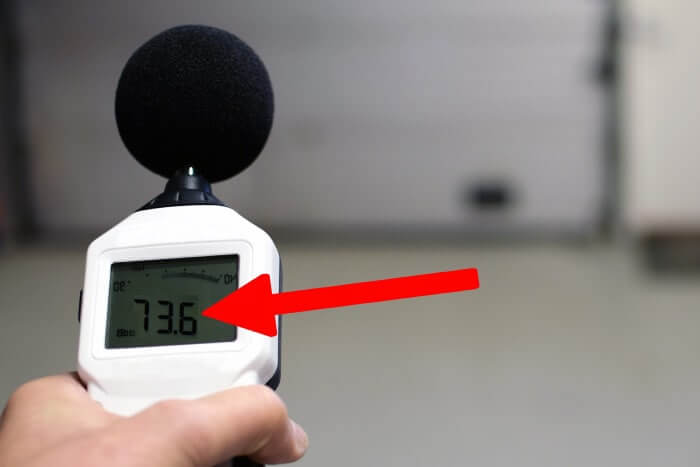
Understand noise levels
Sound measurements are an important aspect of understanding the noise levels of portable generators. The standard unit for this measurement is the decibel (dB). But what exactly is a decibel?
Decibel (dB): Decibel is a logarithmic unit used to measure the intensity of sound. Being measured on a logarithmic scale, decibel levels imply that a small increment in decibels can result in a significant increase in the perceived loudness of the sound. For example, a sound at 30 dB is ten times stronger than a sound at 20 dB.
However, when measuring generator noise, we often use a slightly different scale – the A-weighted decibel scale (dBA).
A-weighted decibels (dBA): The dBA rating is an expression of the relative loudness of a sound as perceived by the human ear. The “A” in dBA refers to a specific type of frequency weighting that mimics the human ear’s response to sounds of different frequencies. Essentially, the dBA measurement is designed to reflect how we actually “hear” noise.
To provide some context, here are some everyday sounds and their corresponding dBA levels:
- Whisper in a quiet library: 30 dBA
- Normal conversation: 60 dBA
- Lawnmower: 90 dBA
- Rock concert or jet engine: 120 dBA

exploring generator noise levels
Understanding how generator manufacturers determine the noise levels of their generators is crucial in accurately assessing the information they provide. To assess the decibel (dB) level of a generator, a decibel meter or sound level meter is necessary.
- Start the generator and let it achieve its normal operating speed.
- Place the decibel meter approximately 23 feet away from the generator.
- Keep the decibel meter stable and press the “measure” button.
- Note down the decibel reading displayed on the meter.
It’s crucial to acknowledge that a generator’s decibel level can fluctuate based on the distance from the noise source. As a result, always measure the decibel level at a consistent distance from the generator to guarantee precise and comparable outcomes.
Now, let’s delve into the typical noise levels you can expect from different types of generators:
A generator’s decibel level may differ based on its size, type, and the listener’s distance. Generally, larger generators produce higher decibel levels than smaller ones, and diesel generators are generally louder than those operating on natural gas or propane. Portable generators, commonly used for backup power during power outages or powering outdoor events, usually have decibel levels ranging from 50 to 80 dB. On the other hand, standby generators, which are permanently installed and serve as a primary power source, tend to generate lower decibel levels between 45 and 60 dB.
However, Inverter generators are known for their quiet operation. Most models produce noise levels between 50 to 60 dBA, which is comparable to a normal conversation or an office environment.
Remember, the perception of noise can vary greatly among individuals. What may seem bearable to one person may be unbearable to another.
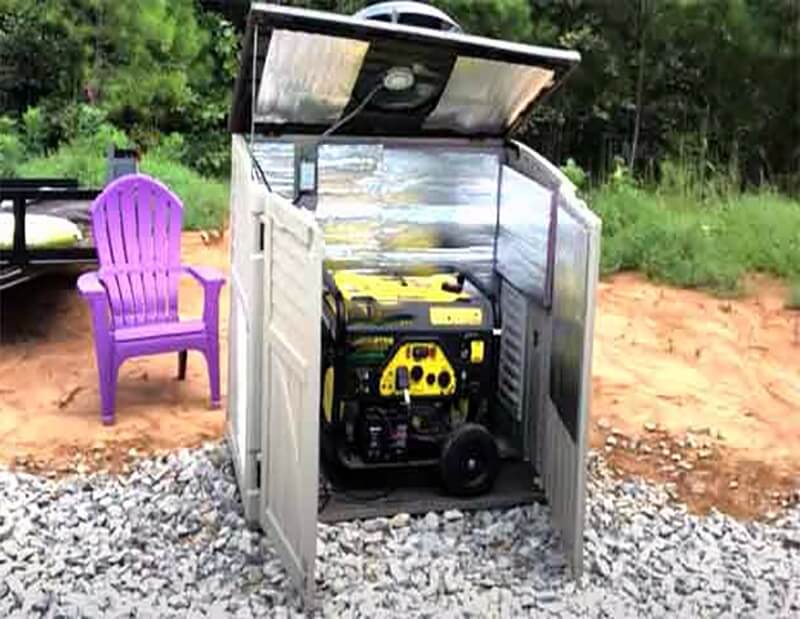
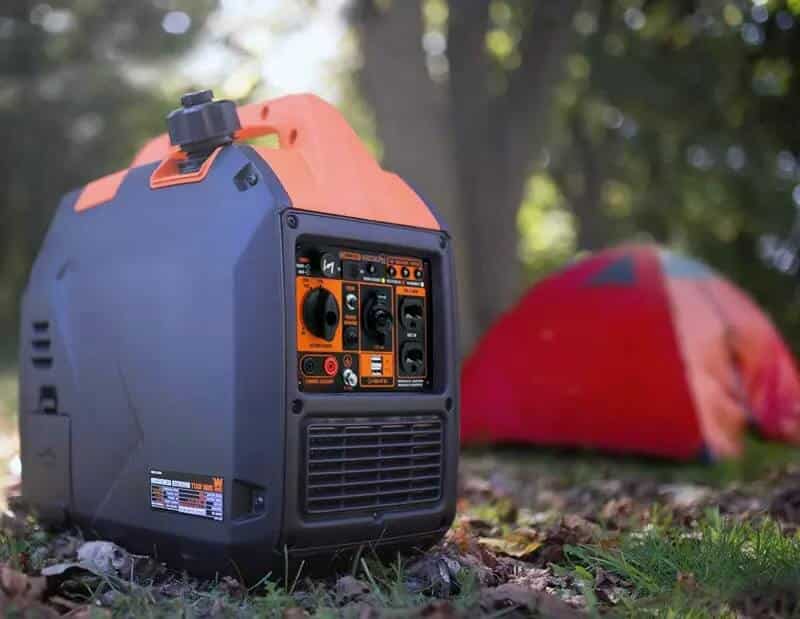
Effect of generator noise
Generator noise can have significant impacts on human well-being and the environment. Here are some key points to consider:
- Health effects: Long-term exposure to excessive noise can lead to health problems such as stress, sleep disorders, and even hearing loss. It is important to understand that generator noise levels are not only related to comfort, but also to health.
- Environmental impact: Noise pollution disrupts wildlife behavior and habitats. In areas rich in biodiversity, it is important to choose quieter generators to minimize ecological disturbance.
- Social disturbance: High noise levels can cause annoyance and conflict between neighbors, especially in densely populated areas or in shared spaces such as campgrounds.
Next, let’s discuss the regulatory aspects:
- Noise regulations: Many cities and municipalities enforce noise regulations that limit the level of noise allowed during certain times. Violation of these rules may result in fines or other penalties.
- Generator use restrictions: Certain areas, particularly residential areas and campgrounds, may have specific restrictions on the use of generators. These limitations usually relate to noise levels and operating hours.
Choosing a generator with the right noise level is not only a matter of personal preference, but also abiding by local laws and considering the surrounding environment. As we move into the next section, we’ll explore various strategies for effectively managing and mitigating generator noise. Remember, the right choice can make your experience with a generator more enjoyable and less disruptive.
Factors that affect generator noise
However, it is worth noting that the noise level of a generator can be affected by several factors, including its size and type, the load on the generator, its age and maintenance, its location and installation, and the type of noise reduction measures that are in place.
Fortunately, there are several ways to reduce generator noise, such as:
- Placing the generator in a well-ventilated and sound-dampening enclosure
- Using a generator with an inverter and/or sound insulation
- Maintaining the generator properly to minimize noise production
- Locating the generator away from noise-sensitive areas
These are just a few methods to reduce generator noise. Curious to learn more? We have a wealth of information on this topic and more in our other articles. How To Make Your Generator Quiet (Easy Tips And Tricks)
Conclusion
In conclusion, noise levels are a crucial aspect to consider when selecting and operating a generator. By considering noise levels in your generator choice and usage, you’re not only ensuring a more pleasant experience for yourself and those around you, you’re also playing a part in minimizing noise pollution and protecting our environment.
We hope this article has been informative and valuable in guiding your understanding of generator noise levels.
choosing the right silent generator: A guide for dealers
BISON offer silent generators, each with their unique features and benefits. We believe our silent generators stand out from the crowd. Here’s why:
- Superior technology: BISON generators are designed with advanced noise-reducing technology, ensuring minimal noise output without compromising power.
- Reliability: We build our generators to last, using high-quality components and rigorous testing to ensure reliability and longevity.
- Support: We offer comprehensive support to our dealers, providing technical information, marketing materials, and prompt responses to queries.
Join us in delivering top-notch silent generators that meet customer needs and protect our environment. Contact us today to learn more about our offerings and how we can support your business growth.
FAQs about making your generator quiet
How loud is a quiet generator?
The quiet generator decibel levels can vary, there are different quiet generator brands but a general quiet generator typically produces a noise level of around 50 to 60 dB at a distance of 23 feet. This is similar to the noise level of a normal conversation or the sound of a dishwasher.
Most Popular Posts
QUESTIONS?
CONTACT US TODAY.
buy?
Related Posts

How to Make your Generator Quiet (Easy tips and tricks)
There are a few things you can do to quiet down your generator so you may use it whenever and wherever you want without making a noise.
Related Products

2kva silent smallest diesel generator
2kva silent smallest diesel generator has an intelligent system: it automatically starts when the power
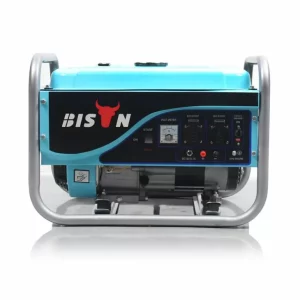
2000 watt dual fuel generator
Product Description 2000 watt dual-fuel variable frequency generator provides you with innovative and multifunctional power
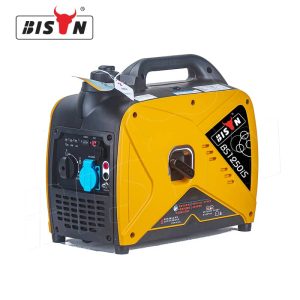
inverter generator for home use
The BISON BS-S2000ie portable inverter generator is the perfect solution for home backup power. It
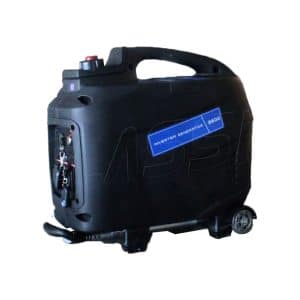
best inverter generator
China best inverter generator — BISON inverter generator It has super overloaded capability, which can
.png)
-qbpqbzxxvtguiuwezisu6wo6j1i29b4m1el1ir1u8o.png)

